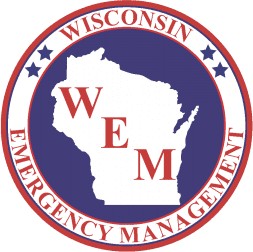MADISON, Wis. — Dangerously cold temperatures and frigid wind chills are in the forecast for much of Wisconsin this week. Single digit highs around zero with overnight lows well below zero are expected. Expect dangerous overnight wind chills from 20 to 35 below zero.
The National Weather Service has issued a Wind Chill Advisory through noon Wednesday for most of the state. Temperatures as low as minus ten along with wind chills as low as 25 below zero are expected in southern Wisconsin. In northern Wisconsin, temperatures will fall to between 20 and 25 below zero with wind chills ranging between minus 30 to 35 below zero.
ReadyWisconsin provides these precautions you and your family should take to keep safe.
Staying in heated areas is the easiest way to protect your health during periods of extreme cold. Consider visiting public buildings like malls, libraries and community centers if your home is insufficiently heated. Call 211 for information about resources specific to your local area.
While at home, monitor your sources of heat. Any heating system that burns fuel, including your gas furnace and hot water heater, will produce carbon monoxide. Carbon monoxide causes headaches, fatigue, dizziness, shortness of breath, chest pain, vomiting, confusion, and ultimately death. If you or someone you know experience any of these symptoms, call 911 and get out of the house to a neighbor’s home or local business. Make sure you have working carbon monoxide detectors in your home. Never run a gasoline or propane heater or a grill (gas or charcoal) inside your home or an unventilated garage.
Be especially cautious consuming alcoholic drinks this holiday season while out in extreme cold. Alcohol may seem to keep you warm, but can hasten health effects from the cold if you are outside for an extended period.
Frostbite can occur on exposed skin in less than 30 minutes. Symptoms include a loss of feeling and a white or pale appearance in fingers, toes, ear tips and tip of the nose. If you see these signs, seek medical care immediately!
Hypothermia (abnormally low body temperature) symptoms include shivering, exhaustion, confusion, fumbling hands, memory loss, slurred speech and drowsiness in adults and children. In infants, symptoms can include bright red or cold skin and very low energy. If you notice anyone exhibiting any of the symptoms of hypothermia, seek medical care immediately!
If you must work outsidewear proper clothing for cold and windy conditions. Wear layers and make sure to cover your head, ears and hands. Insulated and water proof boots will also help.
Overexertion is dangerous. Cold weather puts an added stress on the heart. Unaccustomed exercise such as shoveling snow or pushing a car can bring on a heart attack or make an existing medical condition such as diabetes, hypertension, or cardiovascular disease worse.


